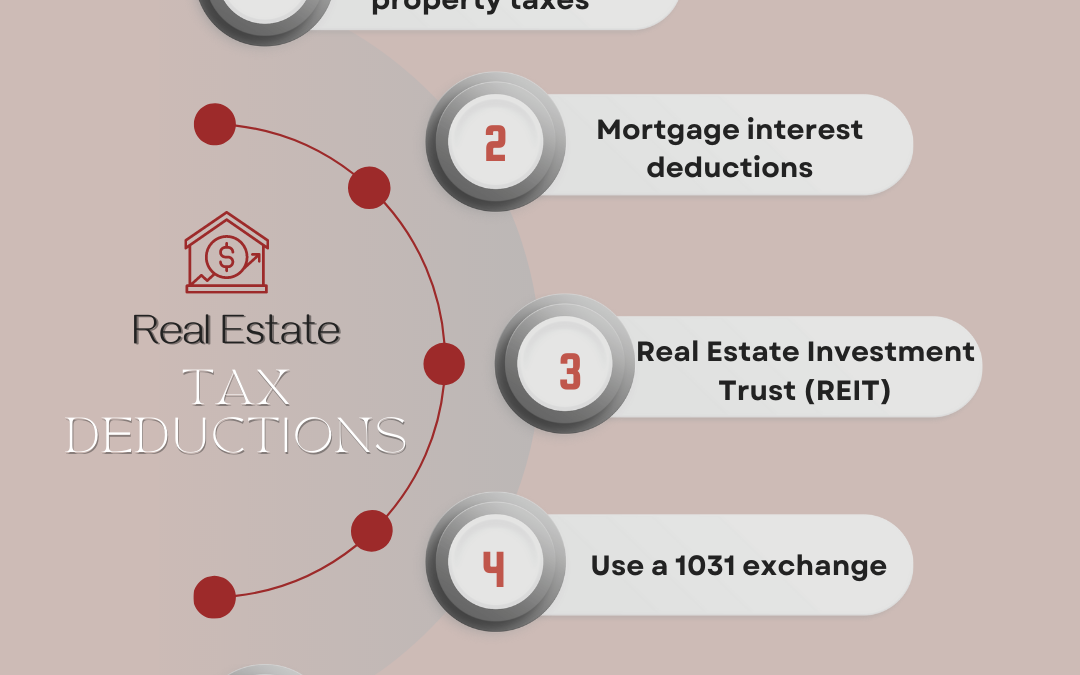Real estate can be a valuable investment, offering not only potential for long-term appreciation but also significant tax benefits.
Here are five real estate tax deduction benefits that you can take advantage of as a property owner:
Mortgage Interest Deduction
One of the most significant tax benefits of owning real estate is the mortgage interest deduction. This deduction allows you to deduct the interest paid on your mortgage from your taxable income, thereby reducing your tax bill. The deduction applies to both primary residences and second homes, up to a limit of $750,000 in mortgage debt.
Property Tax Deduction
Another valuable tax deduction for real estate owners is the property tax deduction. This deduction allows you to deduct the property taxes you pay on your real estate from your taxable income. The deduction applies to both primary residences and investment properties, and there is no limit to the amount you can deduct.
Depreciation Deduction
Depreciation is a tax deduction that allows you to deduct the cost of your investment property over time. This deduction applies to the building and improvements, but not to the land. Depreciation is calculated based on the useful life of the property and can provide a significant tax benefit for real estate investors.
Home Office Deduction
If you use a portion of your real estate property as a home office for your business, you may be eligible for a home office deduction. This deduction allows you to deduct a portion of your real estate expenses, such as mortgage interest, property taxes, and utilities, based on the percentage of your home used for business purposes.
Capital Gains Exclusion
Finally, if you sell your primary residence, you may be eligible for a capital gains exclusion. This exclusion allows you to exclude up to $250,000 of capital gains from the sale of your primary residence ($500,000 for married couples filing jointly), as long as you meet certain requirements, such as owning and using the property as your primary residence for at least two out of the five years before the sale.
In summary, real estate investment is a wise choice for individuals seeking to build long-term wealth, generate rental income, and benefit from a range of valuable tax deductions. By taking advantage of the various tax benefits available to real estate owners, you can reduce your tax bill and optimize your investment returns, ultimately enhancing your overall financial position.
However, navigating the complexities of the tax code can be daunting, which is why it’s critical to work with a qualified accountant or tax professional who can guide you through the process and ensure you’re taking full advantage of every available opportunity.
With the right investment strategy and the support of an experienced tax professional, you can unlock the full potential of real estate investment and achieve your financial goals. Whether you’re a seasoned investor or just starting, real estate offers a range of tax benefits that can help you build lasting wealth and secure a brighter financial future for you and your family.
So, if you’re looking to invest in real estate or already own property, make sure to explore the various tax deductions available to you, and seek expert advice to optimize your investment strategy. With careful planning and a bit of guidance, you can leverage the power of real estate to achieve long-term financial success and create a brighter future for yourself and those you care about.




